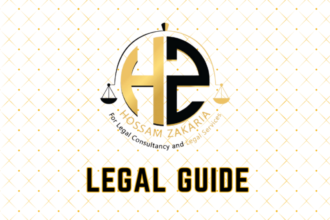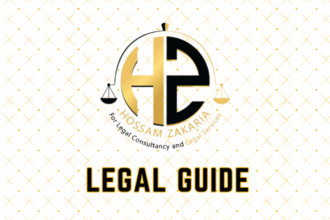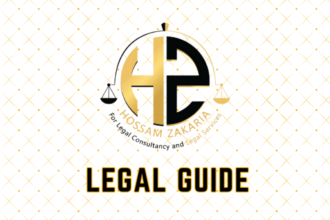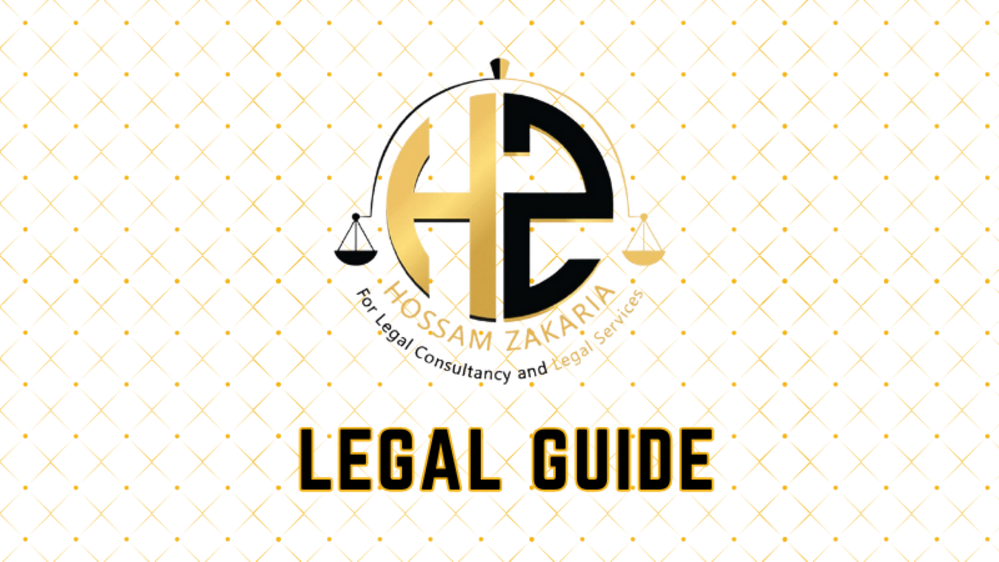Introduction: Understanding Aviation Law Evolution in Qatar and Its Strategic Implications for UAE Businesses
The Gulf’s aviation sector is undergoing a historic transformation. Qatar, as part of its national vision and in alignment with global aviation standards, has recently amended key components of its civil aviation legislation. For UAE businesses—especially those operating in aviation, logistics, travel, and associated legal sectors—understanding these updates is essential, given the tightly interconnected airspace, mutual commercial interests, and regional legal harmonization trends.
This article provides a comprehensive legal analysis of the most recent aviation law reforms in Qatar, comparing them with relevant UAE legal frameworks and federal decrees. Practical consultancy insights are woven throughout, offering actionable strategies for UAE businesses and legal practitioners to manage cross-jurisdictional compliance and risk. With the UAE’s own aviation sector keeping pace through updates to its legal regime—such as Federal Law No. 20 of 2022 on Civil Aviation—clarity on these developments is indispensable for future-proofing operations and maintaining legal compliance.
Professionals, in-house counsel, compliance teams, and executives will find this guide both informative and actionable in navigating aviation legislation’s impact on cross-border business strategy, operational risk, and competitive advantage.
Table of Contents
- Qatar Aviation Law: An Overview
- Key Legal Reforms in Qatar Aviation Legislation (2023-2025)
- Comparative Analysis: UAE Aviation Laws and Qatar Updates
- Practical Implications and Compliance Guidance for UAE Businesses
- Compliance Risks and Strategic Responses
- Case Studies and Hypothetical Scenarios
- Conclusion and Future Outlook
Qatar Aviation Law: An Overview
Historical Context and International Alignment
Qatar’s aviation regulations have historically drawn on ICAO (International Civil Aviation Organization) standards, as well as bilateral agreements with GCC neighbors. The Civil Aviation Authority (QCAA), established under Law No. 15 of 2002, has been the principal agency overseeing airspace, air carrier operations, safety, and compliance. Over the past decade, rapid expansion of Qatar Airways, rising passenger and cargo volumes, and global events such as the 2022 FIFA World Cup have spurred major legal reviews.
Key Legislative Instruments
Among the cornerstone regulations:
- Law No. 15 of 2002 (Civil Aviation Law)
- Ministerial Resolutions and Decrees amending air navigation, licensing, and safety standards
- QCAA Circulars—binding regulatory guidelines
Recent years have seen substantial changes, notably:
- Greater adoption of digital and biometric technologies for passenger handling and security
- Updated air carrier liability and insurance requirements
- Enhanced compliance obligations regarding data protection, environmental standards, and safety reporting
Why These Changes Matter for UAE Stakeholders
Given the high frequency of air traffic and business flow between Qatar and the UAE, as well as shared reliance on regional airspace and infrastructure, these legislative changes have ripple effects for transit, ground operations, joint ventures, and compliance management for UAE-based businesses.
Key Legal Reforms in Qatar Aviation Legislation (2023-2025)
Qatar Law Amendments: Main Themes
1. Security and Passenger Data
QCAA Circular 2/2024 introduced mandatory biometric screening at key airports. Operators must ensure compliance with both Qatari data protection law and international aviation protocols. Penalties for breaches have become more stringent, with fines and possible operational suspensions.
2. Environmental Regulations
Building on Qatar’s commitments under CORSIA (Carbon Offsetting and Reduction Scheme for International Aviation), the law now mandates detailed emissions reporting, with annual audits for carriers above a specified tonnage threshold.
3. Air Carrier Licensing, Insurance, and Liability
Amendments under Ministerial Decree 51/2023 have raised insurance minimums and clarified liability in case of passenger injury, delay, or denied boarding—mirroring EU Regulation 261/2004 paradigms.
4. Enhanced Safety Reporting
All operators are now required to implement Safety Management Systems (SMS) with real-time incident reporting, moving beyond historical annual compliance filings.
Table: Old vs New Qatar Aviation Law Requirements
| Legal Area | Prior to 2023 Reform | 2023-2025 Reform |
|---|---|---|
| Passenger Data | Manual collection, standard privacy waiver | Biometric/AI-driven collection, full privacy audit trails |
| Emissions Reporting | Periodic voluntary reports | Mandatory annual audits above thresholds |
| Insurance Minimums | Lower (based on flight segments) | Increased (aligned to EU benchmarks) |
| Incident Reporting | Yearly submissions | Real-time digital reporting, SMS requirement |
Visual Suggestion: Side-by-side infographic comparing key obligations pre- and post-reform for clear boardroom communication.
Comparative Analysis: UAE Aviation Laws and Qatar Updates
UAE Civil Aviation Regulatory Structure
The UAE’s aviation law is governed by several pieces of primary legislation, notably:
- Federal Law No. 20 of 2022 on Civil Aviation
- Cabinet Resolution No. 5 of 2023 on Aviation Security
- Ministerial Guidelines issued by the General Civil Aviation Authority (GCAA)
The UAE has demonstrated progressive modernization, particularly with the rise of Emirates and Etihad Airways and expansion of Dubai and Abu Dhabi airports. Crucially, the GCAA maintains stringent oversight on safety, airworthiness, environmental compliance, and personal data protection within the sector.
Qatar-UAE Legislative Parallels and Key Divergences
| Legal Topic | Qatar (2023-2025) | UAE (as of 2025) |
|---|---|---|
| Biometric Data Use | Mandatory, governed by QCAA Circulars | Permitted, with consent under Federal Law No. 45 of 2021 on Data Protection |
| Environmental Compliance | Annual audits for large operators, CORSIA adopted | Mandatory reporting, UAE Net Zero 2050 targets, Cabinet Resolution No. 5/2023 |
| Air Carrier Insurance | EU-level increases mandated | Revised (2024), closely tracking international benchmarks |
| Incidents and SMS | Real-time SMS for all carriers | Mandatory SMS (GCAA Notice 7/2024), with digital reporting portal |
Both jurisdictions remain committed to aviation safety and compliance but differ in their implementation timelines, penalties, and regulatory oversight mechanisms.
Consultancy-Practical Insights
- UAE-based charter and cargo operators utilizing Qatari airspace must ensure dual compliance and update contracts for cross-jurisdictional insurance and data transfer clauses.
- Companies engaged in joint ventures with Qatari partners are advised to conduct periodic compliance audits and staff training aligned with the most stringent applicable standard.
Practical Implications and Compliance Guidance for UAE Businesses
Who Is Affected?
- Airline Operators registering aircraft in UAE but routing through or serving Qatar
- Logistics/Handling Agents operating on both sides of the border
- Travel Agencies and Tech Providers processing passenger data across boundaries
Immediate Action Points
- Review and update contractual frameworks to reflect latest insurance, liability, and data sharing obligations (recommend legal review with in-country experts).
- Implement or upgrade Safety Management Systems (SMS) and incident reporting platforms to meet both QCAA and GCAA technical specifications.
- Designate compliance officers for aviation operations handling cross-border activities, with clear reporting protocols in event of incident or legal inquiry.
- Conduct data protection impact assessments if operating biometric or passenger tracking systems that span both UAE and Qatari regulatory environments.
Visual Suggestion: Step-by-step compliance checklist infographic for business leaders
Compliance Strategies for Multinational Operations
Drawing from Ministry of Justice and GCAA guidance, businesses are strongly advised to:
- Adopt the more stringent standard as default in contracts and SOPs—particularly in liability, insurance, and data protection requirements.
- Plan for periodic legal and operational reviews to catch regulatory changes (minimum annual cadence, or after each official Circular or Amendment).
- Maintain centralized documentation of all compliance activities, audits, and correspondence with authorities for least 5 years, in line with UAE Cabinet protocols.
Compliance Risks and Strategic Responses
Risks of Non-Compliance
- Regulatory Fines: Both Qatar and UAE impose substantial fines for non-compliance, often ranging from tens of thousands to several million dirhams.
- Operational Suspensions: Immediate or interim suspension of flight rights, airport access, or transiting privileges.
- Reputational Harm: Media exposure and loss of business partnerships.
- Legal Actions: Potential civil claims from injured parties or class actions for passenger data breaches.
Penalty Comparison Table
| Breach Type | Qatar Penalties (2025) | UAE Penalties (2025) |
|---|---|---|
| Biometric Data Violation | QAR 500,000 to 2 million; operational license suspension | AED 250,000 to 1 million; possible criminal liability |
| Unreported Safety Incident | QAR 100,000; airport ban possible | AED 150,000 minimum; regulatory investigation |
| Environmental Reporting Lapse | QAR 300,000; formal investigation by QCAA | AED 200,000; GCAA full compliance audit |
Visual Suggestion: Simple penalty heatmap illustrating fine ranges by country and risk area.
Strategic Responses to Minimize Risk
- Appoint local legal counsel or consultancy representatives ‘on call’ in both UAE and Qatar for time-critical compliance support.
- Automate compliance monitoring with real-time alerts for deadline-driven filings and incident reports.
- Develop cross-border crisis management protocols, including public relations playbooks and legal response templates for regulatory notices.
Case Studies and Hypothetical Scenarios
Case Study 1: UAE-Based Cargo Operator Expanding to Qatar
Scenario: Emirates Cargo Line wishes to establish a logistics hub at Hamad International Airport, Doha, while maintaining head operations in Dubai.
Key Issues:
- Must obtain additional insurance coverage under Qatar’s revised legal thresholds.
- Needs to upgrade data systems for biometric compliance; Dubai data center must be certified for QCAA cross-border data flow.
- New contracts require dual-law compliance clauses, especially for liability in event of cargo damage.
Outcome: By consulting both UAE and Qatar counsel, Emirates Cargo Line negotiates a comprehensive compliance matrix, avoiding onboarding delays and regulatory sanctions.
Case Study 2: Travel Tech Company Processing Passenger Data
Scenario: A UAE tech firm develops a passenger app that stores biometric boarding data for GCC airports.
Key Issues:
- Qatar’s biometric mandates now require local data residency for certain passenger categories.
- The UAE imposes strict consent and storage time limits under Federal Law No. 45/2021.
Outcome: By collaborating with legal consultancy, the tech company adopts geofencing and consent ticking tailored to each jurisdiction, ensuring continuous operability and trust.
Hypothetical Example: Non-Compliance Response
A UAE charter operator is fined QAR 1 million for delay in environmental reporting in Qatar, impacting its flying rights there. Prompt engagement with legal experts leads to a compliance remediation plan, and flying rights are restored after demonstrating robust corrective action.
Practical Checklist Table: Cross-Border Aviation Compliance
| Compliance Area | Action Steps | Recommended Tools/Resources |
|---|---|---|
| Safety Management | Implement real-time SMS, quarterly audits | QCAA/GCAA portals, ICAO e-learning |
| Data Management | Data mapping, themed privacy policies | Legal counsel review, DPO appointment |
| Environmental Compliance | Eco-audit, emissions records, reporting automation | Sustainability consultancy, CORSIA toolkits |
| Insurance & Liability | Review policies, cross-check with new thresholds | Broker consultations, comparative checklists |
Conclusion and Future Outlook
Qatar’s evolved aviation legislative framework, characterized by higher standards in data security, environmental responsibility, and liability, signals a new era of regulatory professionalism across the GCC. For UAE businesses, aligning cross-border aviation operations is no longer optional—it is an operational imperative. As the UAE also advances aviation oversight with updates such as Federal Law No. 20 of 2022 and recent GCAA digitalization initiatives, regional leaders must be agile, informed, and compliance-driven to mitigate risk and capitalize on new growth opportunities.
Best Practices:
- Continuously monitor regulatory updates from both QCAA and GCAA, leveraging trusted legal consultancy support.
- Invest in robust digital compliance tools and cross-jurisdictional staff training.
- Proactively review insurance, data management, and incident response protocols in line with the strictest legal standards applicable to your business model.
In the coming years, the trajectory of aviation law in both countries points toward further harmonization, digital transformation, and sustainable growth. Legal compliance will remain a bedrock of operational success for UAE and Qatar-connected enterprises. Engaging seasoned UAE legal consultants is the most effective route to mastering these complex, evolving environments with confidence.
Visual Suggestion: Timeline infographic charting next expected legal updates and compliance deadlines for both UAE and Qatar aviation sectors.



